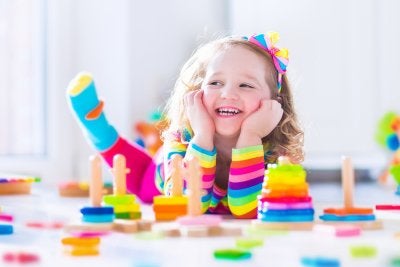When your child is between the ages of three and four, he or she can enjoy preschool activities at a learning center in Pembroke Pines. Socializing with other preschool students will help your child develop empathy, but there are also steps you can take at home to cultivate empathy in your young child. Empathy is crucial for your child’s lifelong emotional stability and ability to work well with other people. The empathetic child is capable of distinguishing his or her feelings from those of others, understanding the perspective of others, and regulating his or her own emotional response.
Help your child identify his or her emotions.
 Preschool students are still working on learning how to identify their emotions and communicate their feelings. Sometimes, falling short in these areas can prompt a child to experience behavioral meltdowns. Label emotions whenever possible. For example, you could tell your child, “Thank you for the hug. That was so kind of you,” “I like how you shared your train with your baby sister. It’s made her so happy!” or “It must have made you sad to lose your teddy bear. Let’s see if we can find it together.”
Preschool students are still working on learning how to identify their emotions and communicate their feelings. Sometimes, falling short in these areas can prompt a child to experience behavioral meltdowns. Label emotions whenever possible. For example, you could tell your child, “Thank you for the hug. That was so kind of you,” “I like how you shared your train with your baby sister. It’s made her so happy!” or “It must have made you sad to lose your teddy bear. Let’s see if we can find it together.”
Encourage the open sharing of feelings.
Young children need to know that their parents are actively listening to them and acknowledging their feelings. Make eye contact and listen carefully when your child speaks to you. Respond with joy when your child shares his or her happy feelings or with sadness when your child is upset. Share your own feelings with your child to help him or her understand that everyone has emotions and that part of life involves learning how to cope with them.
Assign responsibilities to your child at home.
Early childhood development research suggests that children who have small responsibilities at home generally become individuals who are caring and empathetic. Simple tasks like feeding the dog or helping you fold laundry will teach your child the value of helping others. Similarly, it will help your child to better appreciate when other people do nice things for him or her.

